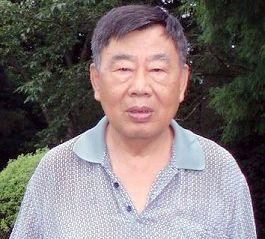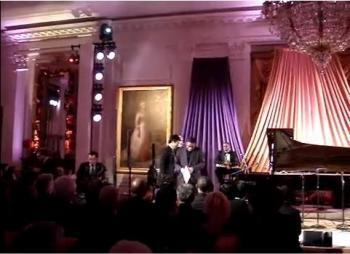The People’s Bank of China announced on May 14, 2008, that its currency policy would focus on preventing price hikes and inflation. The latest numbers show that the Consumer Price Index (CPI) in April was 8.5 percent higher than at the same time last year. The speed of inflation is the highest it has been in the past 12 years.
Professor Shang Dewen from the School of Economics at Peking University said that the government tried to cover up the issue of inflation last year. The issue has now spread to areas other than food, to the point that the government has had to openly acknowledge it. The professor blamed real estate and stock prices for the inflation, which have bubbled because of the collusion between corrupt officials and profiteers.
Shang has dedicated his research to the reform of China’s political and economical systems. He points out that the root of all social conflicts is in the political system.
To fundamentally solve the problem of inflation, the political system needs to be radically changed. However, political figures in the Chinese Communist Party (CCP) are privileged and represent bureaucratic and power capital. They have formed interest groups who will not give up what they have now and push for reform. Hence it is hard to solve the inflation problem in China.
According to data released by China’s National Bureau of Statistics on May 12, 2008, the CPI in April was 8.5 percent higher than at the same time last year. The data shows an 8.2 percent increase in the CPI in urban areas, a 9.3 percent increase in rural areas, a 22.1 percent increase in food products, a 1.8 percent increase in non-food products, a 10.6 percent increase in consumer goods, and a 1.7 percent increase in the service industry.
Shang said these statistics indicate that the central government has publicly acknowledged the problem of inflation because it involves everyone in every aspect and can no longer be covered up. He gave an example of the student cafeteria at Peking University. The price of food in the cafeteria went up so much that it angered the students. The school had to financially compensate the cafeteria in order to cease the conflict.
Shang said, “The rise in prices is a result of inflation. [Prices are higher] not only [for] consumer goods and food, [but] the prices of many industrial products such as batteries, light bulbs, and razor blades all went up. The price of any good includes a labor cost. Once that labor cost goes up, so will the price.”
Unlike in other countries, the source of inflation in China, according to Shang, is caused by speculation in housing and stock markets.
Government officials acquire land from farmers through illegal processes at low cost or no cost. Profiteers who work with the government then jack up the housing prices in the area through the secondary market. The average profit in the international real estate market is 8 percent; the average profit in the real estate market in China is 30 percent.
Unofficial statistics show this type of profit accounts for 70 percent of local government revenue. Many officials try to make personal gains out of the real estate market because they don’t need to worry about legal responsibilities.
“Housing prices in Beijing used to be 10,000 yuan [approximately US$1, 434] per square meter. It then became 20,000 yuan, ” said Shang. “After the housing prices went up, the government then shifted its focus to the stock market.”
Shang emphasized, “The CCP, on the one hand, runs a totalitarian regime, and on the other hand, promotes market economy. This is to embrace corruption and trade between power and money. This is why the inflation issue is an issue of a corrupted system that the CCP can’t solve.”
Shang said that the banking system in China is a state-owned industry. Banks are still the central government’s cashiers, a private cash box. Chairmen of the board of directors of banks are often CCP officials assigned by the government.
Shang thinks the government needs to adjust industrial structure, control the amount of currency issued, stimulate domestic demands, and stimulate domestic demand. But solving the root problem cannot solely depend on fixing the banking and economic systems. There must be political reform.
Shang thinks China’s economy has reached a bottleneck. Its advantage of abundant resources is running out.
“Currently China makes money by exporting clothes and shoes using its cheap and dense labor. The amount of money it makes isn’t much compared to the damages done to the environment and the pollution created. China still needs some time to transform from a labor-intensive industry to a technology-intensive one.”
Shang said that the root of all social conflicts comes from the political system, which severely lags behind everything else. The CCP’s economic reform is only at the surface, on the levels of technology and management, such as setting up mechanisms for company operations. However, the system remains the same—the companies are still state-owned and the company’s chairman and general manager could be from the same party cadre.
The ruling party is communist and capitalist at the same time. “There is no sign so far of any reform, Hu Jintao [Regime Leader] recently said in Japan during his visit to push for ‘political development.’ How do you develop without reform? Any development based on dictatorship will just make things worse,” said Shang.



